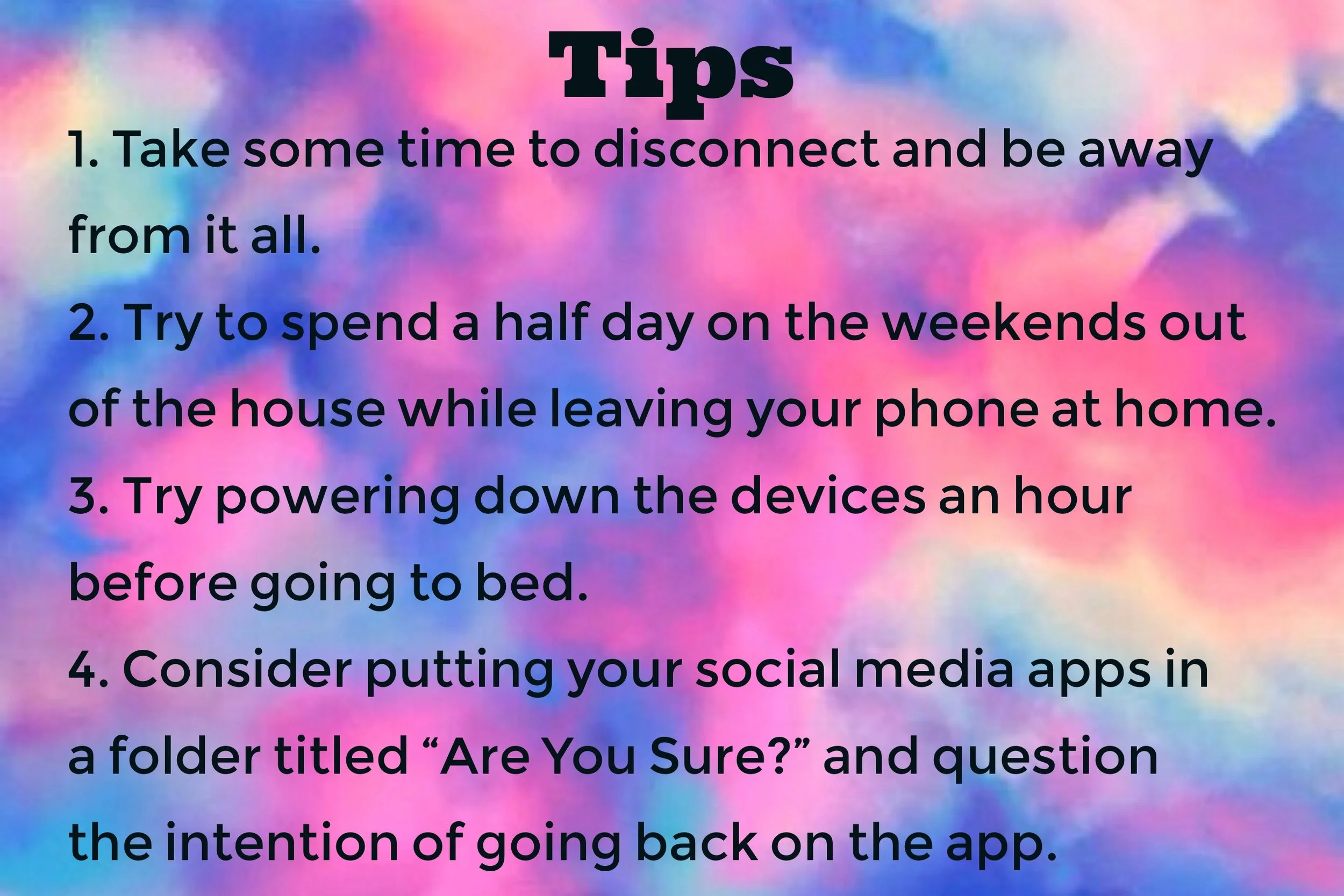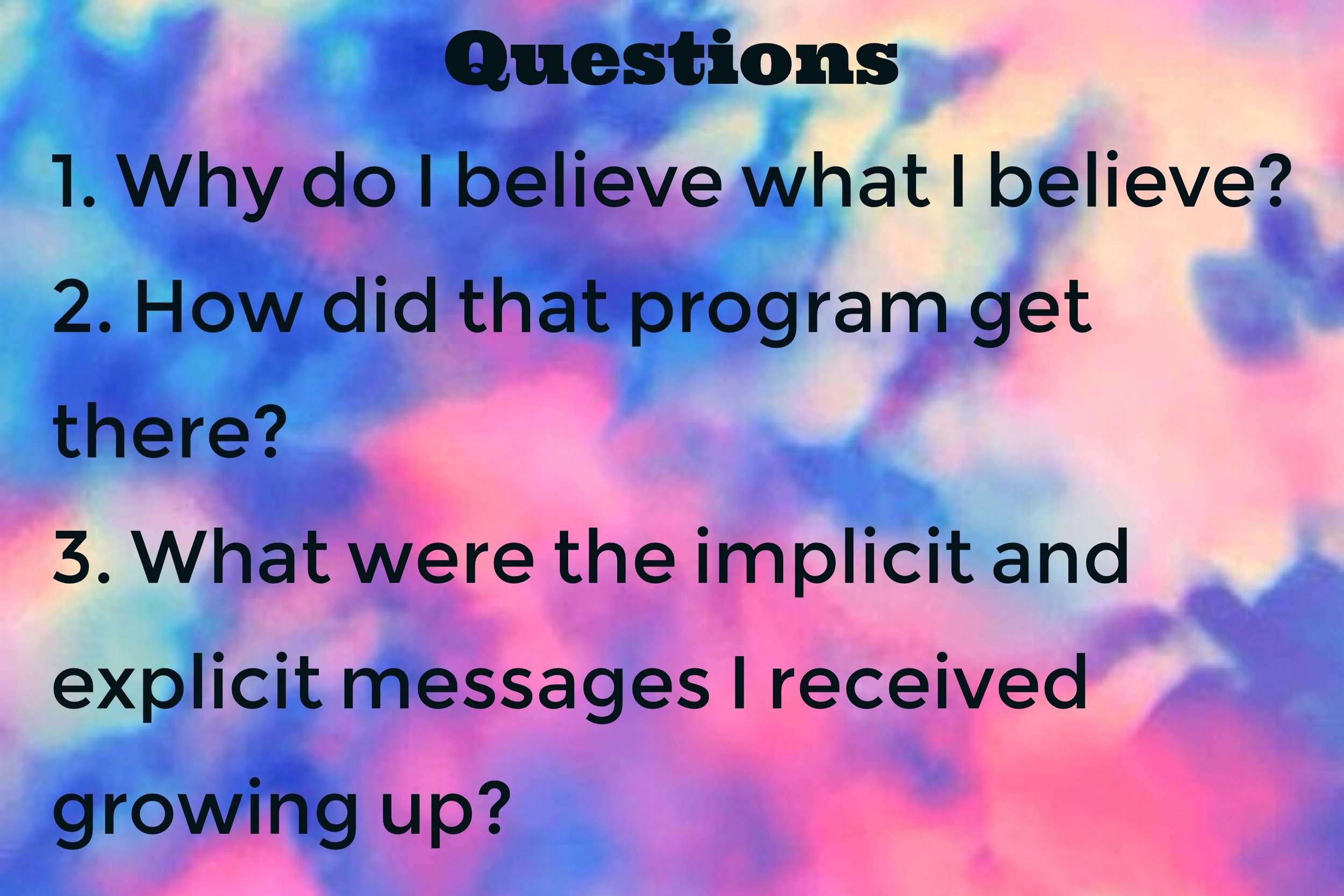The Greatest Advice for a Generation Looking to Overcome Depression, Anxiety, and Much More
Yes, we already know the problem. As a generation, we’re depressed, anxious, and fearful. We are addicted to technology, toxic relationships, and according to millennial-hating journalists, we are also “the laziest.”
I get it. But we are also arguably the most reflective, introspective generation out there. We heavily consume advice from books and podcasts aimed at helping us understand ourselves and better our lives.
But have you noticed that most of the advice is now being delivered through social media—the one place that is said to make us the most depressed?
Lucky for you, we have access to people like Vienna Pharaon, a licensed marriage and family therapist who taps into our deepest fears, breaks down complex problems that we deal with, and delivers solutions that are easy for us to digest.
As a therapist who talks to so many people from different walks of life, you eventually begin to find ways to connect deeply with all sorts of people. And that’s exactly what happened for Vienna, who speaks directly to over 150K followers on Instagram, a number that continues to grow on a daily basis.
Relationship issues, divorce, family problems, toxic environments, job search difficulties, and questionable friendships are just some factors that contribute to this generation's overwhelming experience of shame, depression, confusion, anxiety, and deep sadness.
Vienna, who is based out of New York, tells Beyond The Interview that overcoming these predicaments can be simple, since people in their 20s and 30s today are doing so much work on reconnecting with themselves and understanding their patterns and belief systems.
"They are trying to understand the patterns that keep them feeling stuck, while working through relational conflicts in their personal and professional lives."
Family dynamics come up for just about everyone and addressing friendships that feel off balance or unaligned is quite common also, according to Vienna. Women in particular, at least in New York City, are trying to figure out how to balance their careers and their love lives.
"What I do notice across the board is that people are living very stressed lives. They're often in chaos and feeling like they're behind—not being partnered in a relationship yet, not having a child yet, or not having the right career/title."
Researcher Brené Brown said in a Ted Talk that "we are the most in-debt, obese, addicted, medicated adult cohort in history."
And Vienna says that there are probably many factors that support that statistic.
Problem #1: Social Media
"Social media, for example, does have a tremendous impact on our relationship to anxiety and depression," she says. “We're constantly comparing our lives to the people and personalities we see on these platforms."
"It's almost impossible to manage our expectations for ourselves as we look to what others are doing in their lives, how they seem to appear, and what it is they’re accomplishing (whether true or not)."
Problem #2: Technology in General
"We're a society who is addicted to our technology. There are constant tabs open in our devices (literally) which means that we have all of the tabs running in our minds as well."
And what does this mean for us? At the end of each day, we end up suffering. "There are so many things left to do at the end of every day because we're rarely able to close out all of the tabs that we’ve opened," adds Vienna. "This contributes to the depression and anxiety because critical narratives will waltz their way into our minds as we start to bash ourselves for not doing [X] or not completing [Y]."
Problem #3: Being "Busy"
"We've also glorified being busy, as if there’s a badge of honor to be worn. Busy isn't sexy; efficiency is."
It's true, we do have to hustle a bit, but always being busy doesn't make you a star, she tells BTI. "In fact, we might argue that it makes you depressed and/or anxious, and certainly disconnected."
Some tips, please?
Problem #4: Being Surrounded By "Toxic" People
We see a lot of posts online about "removing toxic people" from our lives. People do make mistakes though.
So how do we differentiate between a toxic person and a human being who simply made a mistake?
Giving chances is an important part of growth, but knowing when it's time to set AND keep the boundary is incredibly important, according to Vienna. "We're all human. We make mistakes, we let others down, betray them, say hurtful things, and disappoint others (sometimes more than once). We do this, and others do this."
Here's the kicker:
"People who can take accountability and ownership and then work towards the healing are people we can generally allow back into our lives."
Many people ask Vienna whether or not she thinks giving people a second chance is wise. "Growth, and the ability to articulate it, is always a prerequisite in my book," she says. "I do believe people can change and break out of unhealthy patterns, etc. If they want to be back in your life though, they ought to be able to explain to you what has changed and how they were able to do it."
Letting someone back in just because "they're sorry" might not be enough, she tells BTI. "If the same things keep happening over and over again, setting the boundary and keeping it is something to work on."
Problem #5: Being Enough
According to the narratives on Instagram, people tend to stay in relationships, even when they're not getting what they deserve. Why is this? Do we feel like we don't deserve better?
"I do believe that all of us, as Brené Brown says, are deserving of being loved and belonging. It's straight up our birthright," says Vienna. "Yet, so many of us carry around insecurities and fears that keeps us from honoring ourselves and the relationships we keep in our lives."
"The stories we tell ourselves about ourselves often suggest that we aren't going to find someone better, that we aren't good enough, or that it's better to be partnered than single."
Women in particular are programmed to be desired, she says. "Our job is to be [fill in the blank] enough in order to have someone want to be with us. That message gets internalized and convinces us that we have to be chosen (without our own input), instead of a healthier narrative which allows all individuals to choose each other."
What she suggests to ALL people is to check the stories they're telling themselves about their worth.
Vienna SUggeSTS that you ask yourself:
Problem #6: Minimizing Our Pain
"So many people try to shrink, minimize, and invalidate their pain and their stories by comparing it to the stories of others," Vienna says. "'It's not like I was sexually abused or anything' or 'I know others have had it way worse' is a version of something I hear quite often."
"I tell everyone not to wound-compare. It's the worst thing we can do to invalidate our stories."
Our healing starts by acknowledging our pain, according to Vienna, who says therapists will often encourage their clients to "name" their pain.
"We should all label our pain and wounds exactly as they are without trying to rationalize them. For example: 'My dad traveled a lot for work and wasn't around that much but that's because he was providing for the family' might sound more like 'my dad was absent.'"
She says the former often feels more comfortable for most of us (survival and protection — for the self and dad— may come forward), but the latter allows the younger self to name and identify the experience.
*This example is not necessarily a wounding experience for everyone - it’s your job to name your own.
From there, you'll want to feel the pain and let yourself exist with it. "We like to rush ourselves through this part but it's really important to take your time here. And I know—I’m asking you to sit with pain...not thrilling, but it’s necessary."
Once you spend adequate time with those wounds, they will trust you to expand into your healing. [The wounds] won't think that you're abandoning them. Instead, they'll trust that you have seen them and won't forget about them. "Healing takes beautiful, consistent work that I encourage all of us to lean into," she says.
Problem #7: Sticking To The Old Story
We are constantly being encouraged to "rewrite our story." We hear it time and time again, yet we still have a hard time shedding our fears. How do we reprogram our minds and stop making the past so powerful? Is there a reason this is so hard to do?
The past is powerful because it often fears that if you move on from it you’ll be abandoning it, Vienna says.
"So many of us shame our pasts. We try so hard to disown it and ignore it."
And this is the worst thing for us to do, according to Vienna. "We need to embrace our story and see it for what it is and was. We need to talk lovingly to all of our parts that are afraid that if we 'rewrite our story' we'll be forgetting the younger versions of ourselves that so desperately needed to be seen, acknowledged, loved, and understood."
Instead of "rewriting our story," she recommends that we expand our story by adding a "resiliency chapter."
"Shedding our fears is hard work, but when we start to hold hands with the parts of ourselves that are afraid, unsure, and insecure, we can let those parts know that we've got it, even if we are scared," she says.
"That's the thing, we can all be scared AND still move forward. You can't wait for the fears to go away; I'm not sure anyone does. This is more about taking the risk even when our palms are sweating and hearts are pounding."
Reprogramming our minds requires us to look closely at what the current programs are. So we must ask ourselves:
We were all programmed without having much say. Family, society, friends, etc. shape our worlds for us, according to Vienna. We're told that this is how we ought to behave, that this is what 'X' gender does or doesn't do; we see how families communicate (or not) and begin to assign meaning to all the things around us, she says.
"If we don't take the time to reflect on our beliefs, we'll be allowing all of these programs to run our worlds for us."
Dr. Bruce Lipton's research tells us that we are only in our conscious minds 1-5% of the time. For Vienna, that research is mind-blowing. It's also a beautiful invitation for us to lean into exploring the programs so we can start sitting in the driver's seat of our own lives.
And that's exactly what Vienna loves helping people with.
"I'm not sure what it is, but I'm glad that my take on topics can reach so many people in a way that makes sense, and encourages them to think about things differently than before."
"I really listen," Vienna tells BTI. "I listen because I care, truly. I dive into people's stories in a unique way and can feel connected to a person's experience at all stages of their lives. People will often be surprised that I can remember a detail they told me years earlier. It's all significant to me."
Vienna Pharaon
If you're interested in working or collaborating with Vienna, you can reach out to her at vienna@mindfulnessmft.com, or check out her inspirational words on Instagram at @mindfulmft.



